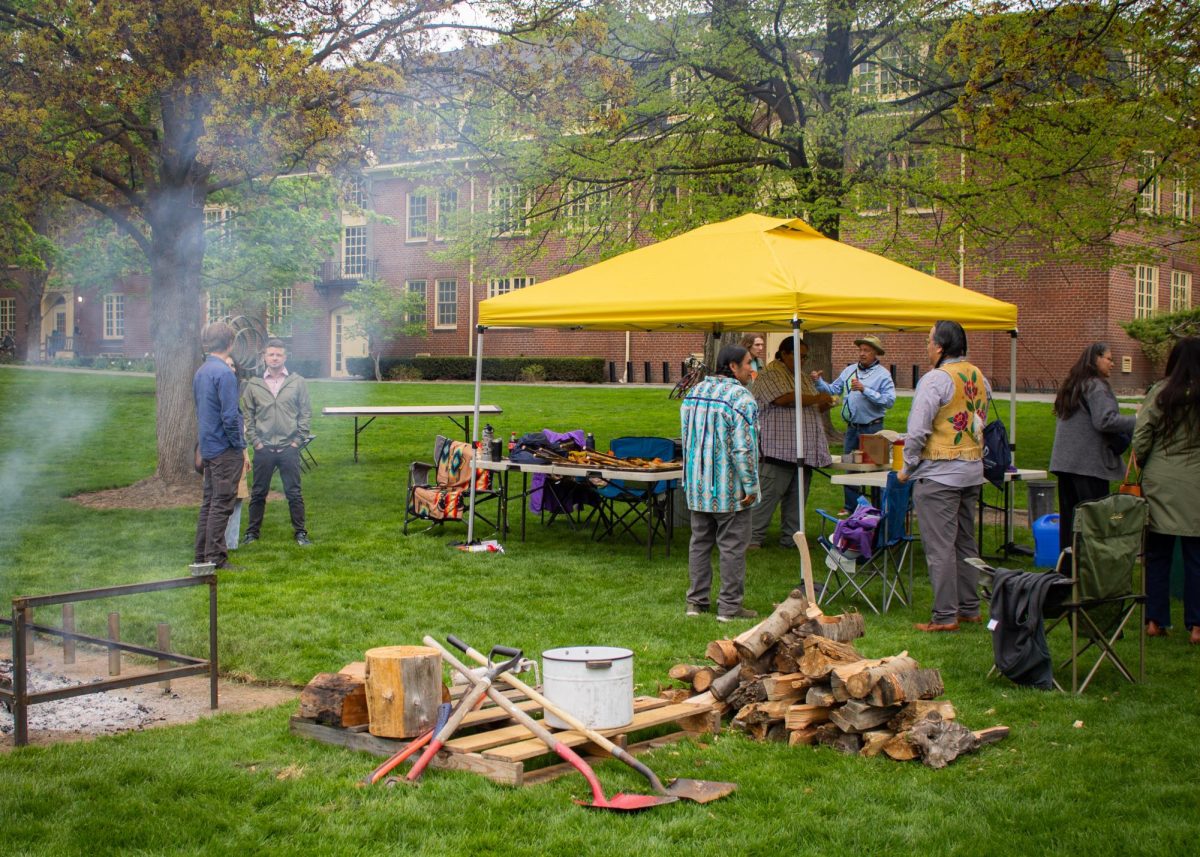by Lizzie Norgard
When one of your professors returns from sabbatical, don’t ever ask, “How was your time off?” You might ask them what they were working on, though their scholarly labors will likely be revealed through their teaching. Such is the case with professors Patrick Frierson and Robert Tobin, who took sabbaticals in 2005-2006 and 2004-2005, respectively.
Philosophy professor Patrick Frierson spent his sabbatical writing articles for publication in several philosophy books and journals. In the summer of 2005 he contributed articles to an encyclopedia on Kant, and then spent most of the following year writing a series of articles on Adam Smith and environmental ethics. One of Frierson’s articles on Adam Smith will be published in a book called “New Voices,” and another will be published in a journal called “Pacific Philosophical Quarterly.” In the summer of 2006, Frierson worked with a student through a Perry grant on a translation of Kant’s notes on Rousseau, which he had begun with another student in 2005, also through a Perry grant.
Frierson said that producing articles while teaching is “impossible.” “When I’m teaching, it’s 95 percent teaching, 4.5 percent advising, and half a percent research,” he said. He expressed a need for balance between teaching and scholarly work because while scholarship is an end in itself, it is secondary and supplemental to his teaching: “[Scholarship] ends up being valuable for my teaching, partly for all the reasons that everybody thinks it is: I stay excited about what I’m doing, I end up knowing a lot more about what I’m teaching than I would if I weren’t doing scholarship. But also it cultivates virtues in me that I think help me in my teaching: it forces me to write clearly and in a way that other people can understand, and also to write at a higher and higher intellectual level, and that’s stuff that I’m trying to get my students to do.”
Besides strengthening their ability to relate to students’ academic endeavors, the work professors do on sabbatical also affects the content of their courses. Professor of German and Gender Studies Robert Tobin, who received a grant in 2004 from the Rockefeller foundation to study in a year-long Columbia University program called “Sexuality, Gender, Health and Human Rights,” said that his understanding of gender and sexuality has broadened through contact with other fellows in the program, which has changed the way he teaches classes.
While in the program, Tobin wrote a book on the political and medical origins of the term “homosexual” in nineteenth century Germany and, while studying, he interacted with people of academic backgrounds different from his own. He said that most of the people were studying sexuality and gender from the point of view of law, human rights or public health. “That was very mind-broadening for me, because most of the people in the program are working on more contemporary issues, so I was kind of unusual and liberal-artsy that way,” he said.
Describing his opportunity to consider gender and sexuality from the angles of contemporary health and human rights, Tobin said, “I feel so much more broadly educated, and it had the direct effect last year that I was able to offer a special studies course, also called “Sexuality and Human Rights,” in the Gender Studies program, which was pretty exciting for students.” Tobin also said that much of the material in other classes he teaches, such as last year’s “The German Discovery of Sex” and this year’s senior seminar, comes directly from work he has done on sabbatical.







